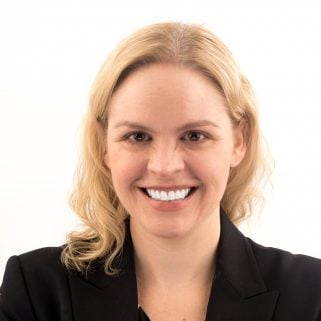Credit unions were founded on the mission of people helping people. It’s a proud mission – one that is worthy of respect and attracts intelligent employees committed to making a difference. We are doing awesome things in the world – such as running Mad City Money programs at local high schools to teach youth about financial literacy and opening student run branches. We are at the forefront of developing products that are alternatives to the subprime market. We send our leaders to Credit Union Development Educator’s school to ensure we are tackling global problems, and are just generally helping people that are turned away elsewhere. Credit unions have reached a cumulative 100 million members because we are doing many things right. We are cooperatives that work together, and do our work very well.
We also need to be careful. Individually, each of our institutions are uniquely structured because of our common bond charter. Therefore, credit unions were really founded to serve people like ourselves. Our common bond charters meant that credit union members were historically those of our local community, our church or other association, our industry peers, or our co-workers. This common bond charter also creates limitations on those outside of the circle that can be helped. In many ways, we have grown past the notion of only helping people like ourselves as our charters grow and as smaller credit unions merge with larger ones. Large, multi-state chartered credit unions make banks nervous because we are reaching people everywhere. We provide real competition in a diverse marketplace. As we earn more market share, and even while many of us expand our community development reach (the NCUA and the CDFI Fund recently partnered to increase the number of community development credit unions nationally) we have to be careful that we aren’t holding on to the phrase “people helping with people” with an unspoken “….like us” added to silently finish the sentence.
There is an easy place to measure what we truly value in our efforts to meet measurable financial goals while helping people. The measure can be found in our hiring and promotion practices. Section 342 of the Dodd-Frank Act strongly encourages diverse hiring and promotion practices, and authorizes federal agencies to review organizational practices. As cooperative financial institutions, we need to be better than regulation. Let us decide to be leaders in the financial services industry in this area. The NCUA’s Letter to Credit Unions Letter 15-CU-05 encourages a voluntary implementation of its best practice diversity standards. Even though we are not regulated in this area, we would do well to be eager to adopt best practices. This Credit Union Times article published this past May indicated that small credit unions are heavily led by women, while large credit unions still lag in female CEO leadership. Perhaps we can do better. Diversity in hiring means so much more than female leadership, though. It means adopting hiring practices that are intentionally inclusive at every level. Leaders in the credit union industry need to be thinking about hiring and promoting from a pool of candidates that include women, minorities, those of various ethnicities, sexual or gender orientations, live with disabilities, or any other person who is not ‘just like us.’ Our board members need to lead by example.
Inclusivity is hot topic, especially this election season. Even so, thinking about diversity and inclusion should not be motivated by social acceptability, or even by profitability, although business cases could be made for either rationale. We should hire and promote for diversity because it makes us better credit unions. A recent Forbes study indicates diverse teams foster innovation and perform better than homogenous teams. This is true because diversity offers us a perspective not bounded by our own cultural lens. It helps us see the world in a larger way and helps us develop products and services that are truly relevant. We connect better with more members, and the relationships we forge when we are willing to learn from others make us more holistic leaders.







